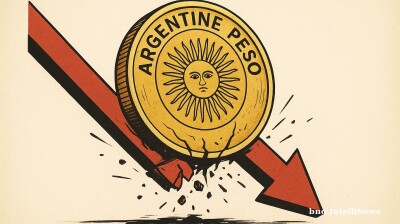The Royal Thai Army has admitted deploying white phosphorus (WP) shells during the five-day border clashes with Cambodia in July but insists the practice was lawful and did not constitute the use of chemical weapons, according to Kiripost.
Army spokesperson Major General Winthai Suvaree told the Thai Enquirer that WP is employed for producing smoke, providing illumination, and for explosive purposes, stressing that it is not classified as a chemical weapon under the Chemical Weapons Convention (CWC).
He also reportedly said that no international treaty now prohibits the storage or use of WP munitions, which in turn allows Thailand to maintain and deploy such items in military operations.
The confirmation followed claims by Heng Ratana, Director General of the Cambodian Mine Action Centre (CMAC), that experts had recovered a 155mm artillery shell containing WP in Oddar Meanchey province, describing it as a dangerous incendiary and toxic smoke-producing weapon.
Winthai countered that WP shells are not defined as incendiary weapons under Protocol III of the Convention on Certain Conventional Weapons (CCW), which bans arms specifically designed to burn human targets.
He underlined that their use by Thailand was limited to military engagements and not directed against civilians, arguing that the practice complies fully with international law and humanitarian principles.
On July 28, Maly Socheata, spokesperson for Cambodia’s Ministry of National Defence, accused Thai forces of deploying chemical weapons in several contested border zones. She alleged that fighter jets had released toxic gas shells over An Ses and that cluster munitions, suicide drones, and chemical weapons had been used in Phnom Khmouch. Thailand has firmly rejected these claims.
According to the World Health Organisation (WHO), WP is a waxy, yellowish or colourless chemical substance, often described as having a garlic-like odour. WHO warns it is hazardous through all routes of exposure, with smoke from burning phosphorus causing serious harm to eyes and lungs. Contact can lead to deep burns capable of penetrating bone, while medical staff treating WP injuries risk secondary exposure.
The WHO notes that using WP as an incendiary weapon against civilians could violate Protocol III of the CCW.
Thailand is not party to this protocol, although it is a CWC signatory. Cambodia has acceded to both treaties, Kiripost added.
News

US, Egypt, Qatar, and Turkey sign agreement to end Gaza war at Sharm El-Sheikh Summit
The US, Egypt, Qatar and Turkey signed a binding peace document on October 13, guaranteeing a ceasefire in the Gaza Strip, marking what President Trump called “perhaps the greatest achievement” of his presidency.

Pakistan, Afghanistan exchange fire along contested Durand Line
Pakistan has claimed responsibility for killing over 200 Taliban fighters in a series of precision strikes along the contested Durand Line.

Trump lands in Tel Aviv as Israeli hostages begin return home
Donald Trump arrives in Israel as the first Israeli hostages are released from Hamas' captivity.

Von der Leyen to confront Hungary’s EU Commissioner over reported espionage attempts in EU institutions
European Commission President Ursula von der Leyen intends to personally discuss espionage allegations with Hungarian Commissioner Oliver Várhelyi, Commission spokeswoman Paula Pinho said at a press briefing in Brussels on October 10.




